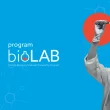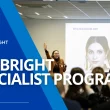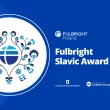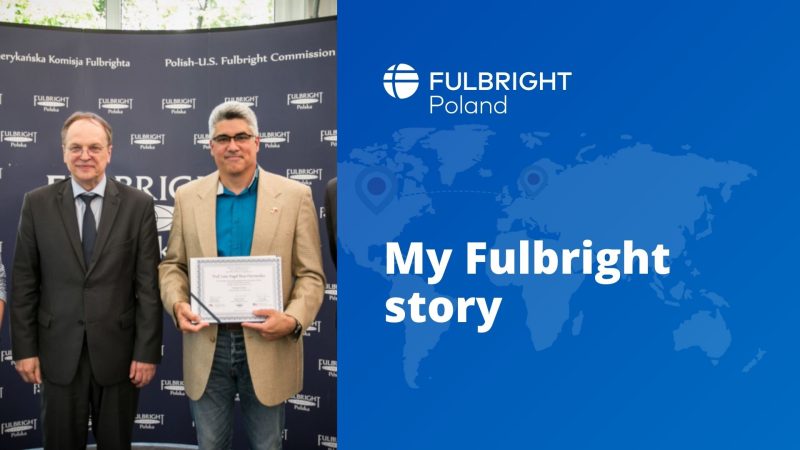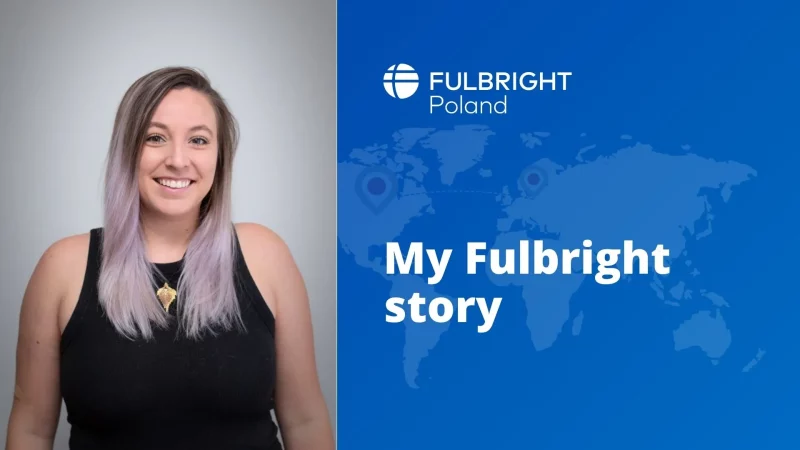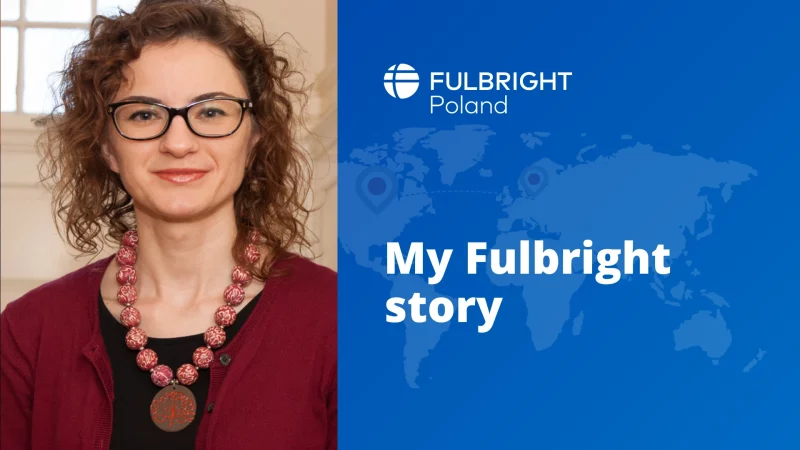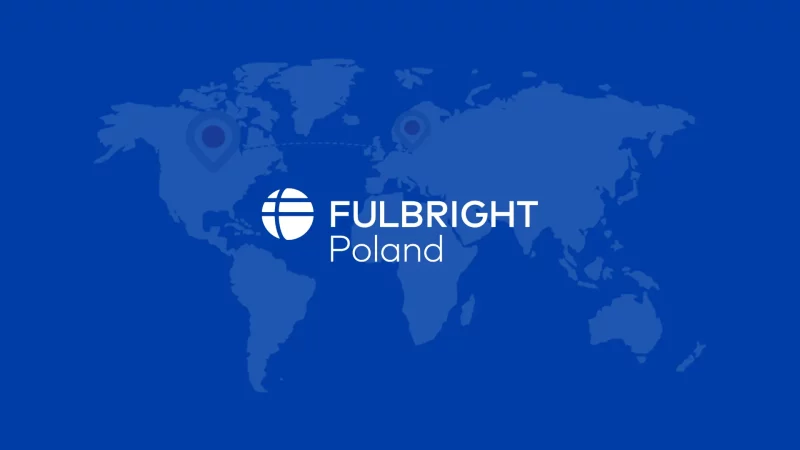My year as a Fulbright scholar in Poland
By Luis A. Ríos Hernández, Ph.D.
Never in my wildest dreams could I have dreamed that I would spend a year living, teaching, and researching in Poland. Even when I applied to do so, the odds of actually receiving a Fulbright grant are too low to believe that you will get it the first time around. Believe it or not, I got it! The excitement was short lived since my home institution could not give me the green light to commence my scientific, professional, and personal journey. In part due to the financial difficulties that we were, and still are, experiencing. I was fortunate to have many administrators and colleagues that supported me and my achievements defend my sabbatical application against all odds. Once I was granted the award, though, I was really excited to move to Poland. I was nonetheless concerned with the challenge of moving my whole family to a country that we knew little about, as well as not speaking the language (well we memorized a few conversations that we learned from a CD to learn polish). Looking for an apartment was one of the most difficult things for us. Since I am the type of person that must plan everything and not leave anything to chance, I spent many nights surfing the web, looking for an apartment without success. Arriving in Poland without a long-term apartment was almost unbearable for me. Failing to provide security and comfort for my family was stressful to say the least. We arrived a month prior the beginning of my appointment (August 23, 2015), but only a week before my children (Gaby 14 and Diego 10, both a year older now) started their school year. That was a very busy week for all and a very steep learning curve; learning how to use the public transportation system, where to buy groceries, getting our cell phone service, school materials, and visiting 6 or 7 apartments in a day to figure out which one would suit us best. That was a lot for any family, but we endured and came up with a great apartment in the heart of Stare Miasto (old town), close to the local public transport (minutes to the Brama Wyżynna Tram station), 10 minutes to the main train station (Gdansk Główny), a sklep (small store, like a convenient store but much more) downstairs, close to Biedronka (grocery store/supermarket), and just two streets from Ulica Długa. Unfortunately, the building did not have an elevator, so we got used to climbing 86 steps to go up and down, sometimes 3- 4 times a day! On the other hand, the views from the top floor were great and allowed us to witness many activities prior to joining them.
We decided to enroll our children at the International School of Gdańsk since it allowed us to enroll both kids in the same school and we thought that this was necessary so they could support each other in this new experience. Actually, it turned out to be the best decision for us. Not only did it fit our budget, but also the school was easily accessible by public transport and more importantly our children LOVED the school. I think, for the first time they were able to see teachers in a different light. They both enjoyed the personal relationship they developed with their teachers as well as the many friendships they managed to create. The school was very different from what they were used too. The classrooms were very small (8 students in 5th grade and 7 in 10th grade), lots of presentations, projects, day trips (movies, theater, museums, etc.), and even overnight trips (at the school gym) including international educational trips to Berlin. Fortunately, my entire family was quickly “adopted” by the parents at ISG (parents of the 5th grade for the most part). They quickly assimilated us and made us part of their community. This interaction allowed us to learn and experience what it really meant to be Polish. We learned the culture and experienced their everyday life. We were able to witness how they live, what they eat, their costumes, their beliefs, their traditions, and the significance of family. We greatly owe them for helping us transition, worry free, into our new lives in Poland. Especially for my wife, the mothers from the school would schedule many social activities, lunches, dinners, movie nights, and alike; which allowed my wife to also feel as part of a group, and learn many different things. I can only hope that we will get the chance to host them in our country so they too can witness what it is to be Puerto Rican.
My experience at the University was somewhat similar, the graduate students that I share office space with (we were 9 in the office) took it upon themselves to make sure that I knew what was happening in the department as well as in the community. For example, they kept me informed about holidays (day of the dead, independence day, mother’s day, grandmother’s day, children’s day, Corpus Christy, name day, etc.), and their significance. They helped me understand where to go and how to take advantage of various opportunities to learn the culture and witness Polish society. We were really fortunate to be a part of this… I came to Poland as U.S. citizen born in Puerto Rico, and I left Poland knowing that a part of the Polish culture will always be a part of who I am. I learned to make pierogi and I totally went crazy with all the possibilities since I really like to cook. Every so often, I would make a comment about the new pierogi that I would make at home and the students and colleagues would typically be impressed, and somewhat intrigued with my selection of fillings (pizza: ground beef, marinara sauce, and mozzarella). So, one day I decided to invite all my lab mates to my new “pierogarnia” and brought eight different flavors: potato and goat cheese, potato and camembert, Texas chili, chicken liver with mushrooms and twaróg, kaszanka with mango chutney, pork shoulder Puerto Rican style, Asian style, and piña colada with a rum glaze sauce (pineapple and coconut filling). This was a great activity to show my gratitude, but also to push the boundaries, expand their palette and “revolutionize” their traditional pierogi. Each of them had their favorite. We discussed how to improve them, what other flavor combinations would be good, and I even got an offer for a partnership on a food truck… all in all, a great experience.
The experience in the lab was outstanding, and the hospitality and the level of scientific collaboration was world class. I was able to successfully collaborate and share laboratory space within the University of Gdańsk (Dr. Barbara Kędzierska), and within the Biotechnology Department (UG) I had full access to Dr. Obuchowski’s laboratory. Together, this experience significantly reinforced my scientific sense of community – as it should be! This is something that we all expect but not necessarily get to experience. Furthermore, I inserted myself into my “new” department and I tried to make myself available as a regular member of the department. As such, I became involved in an outreach activity in which I would visit different high schools to present my science and to promote the sciences in general. I took advantage of that opportunity to showcase becoming a microbiologist as a future career choice, and presented the microbiologist’s role in science and the benefits that we bring to society. I offered 10 invited lectures on 4 different topics: Microbiology and water quality, Ecology of the Enterococci, Anaerobic biodegradation of biomass to produce an alternative energy source, and Syntrophism living at the energy limits. These lectures contained much of my research efforts but they were really targeted to stimulate students to become scientists.. I believe that the audience enjoyed the lectures and my style of lecturing and possibly the content (I even got a poem form students). In a different activity “Noc Biologów” (like an open house for the whole family), I got a chance to collaborate with graduate students on a workshop/presentation in which kids and parents came to learn about ill-causing microorganisms among many other things. Actually, I was very impressed with the number of families with kids (6yrs to 15) who participated (over a 200 at our table) in the 4 hour activity. Furthermore, I collaborated with a fellow Fulbrighter, Marta Kalabinski (at UG), the US Department of State, and the US Department of Education to offer an informative presentation on opportunities to study abroad in the U.S. during the international education week. This presentation included our experience as graduate students and many relevant advice on how to be successful in a graduate program in the U.S.. We were fortunate to receive over 150 audience members (students, professors, and administrators).
I was fortunate to scratch the surface of the Polish language (taking formal and informal classes during the whole time), and I learned that a little goes a long way. The Polish community feels very proud of how difficult their language is, and to hear you attempt to communicate in their native language fills them with joy (typically brings a smile to their faces). Thankfully, they are easily impressed with any attempt. They will actually ask why you are learning the language, as it is so difficult and it is only spoken by Poles. My answer was simple: we should never stop learning, but more importantly I want to hear your story in your own language! (I am not there yet, but it is a work in progress.)
This Fulbright experience taught me that I could succeed outside of the U.S. educational system and that I could live comfortably in Europe. The reality of living outside the U.S., and learning to enjoy every day while observing each and every cultural difference was priceless. I have no regrets that I have learned so much not only about Poland and its culture, but actually about myself as a scientist, and more importantly as a global citizen. Teaching first-year Polish graduate students was also an adventure. Nevertheless, I really enjoyed the opportunity to challenge myself and try to overcome stylistic differences. In this particular topic, I need to make a parenthesis and express my opinion based on my experience and the reader might appreciate the observation. The Polish educational system is totally free like in other parts of Europe, but it is interesting that the public institutions get their funding based on a number of students in different programs. At a glance, this might bring some justice, but in reality, it creates a massive problem. The students know that the institution must keep a healthy number of them regardless if they really make an effort to belong in a University. In other words, some students literally do nothing, do not go to class, do not turn in their assignment, and expect to pass the course since failing might result in the loss of funding for the institution. The administration has developed a system to reward these types of students by offering them a second chance, which is expected and almost obligatory. Basically, those students that fail to do their work in time (or at all) get the chance to make it all up at the end of each semester. They get the chance to retake failed exams, turn in old homework, or even get a comprehensive make-up work for their failed grade. In my opinion, this is totally unfair to the other students who are responsible, attend classes, and turn in their work on time. Basically, it seems that there is no reward to be an excellent student. What is the incentive for a student to be responsible if in the end the other students might end up passing the course with the same grade as them but without putting the same amount of effort? This past semester, I had the ugly experience to tell 4 (out of 12) students that unfortunately they would not pass my class due to their lack of effort and irresponsibility, and yet they wanted me to give them a make-up test… they tried to explain to me the rules that they are used to, they even suggested that they would have to talk to the dean since they have to pass this class especially since it would not be offered the next semester. I only replied that I was certain that I had offered them plenty of opportunities during the semester, and had explained it to them from day one. For instance, I offered them an extra credit work with a value of extra 30% of the total points, which they decided not to do at the time. Just to be honest, some of my students in my own University system also have the same attitude. But the biggest difference is that at my institution the syllabus becomes the contract between students and professor. Usually, I can show them that their poor decision-making during the semester has led to their ultimate failure, and that I had no other choice than to evaluate them based on their efforts. Regardless of the location or cultural background, this type of experience is never pleasant.
Now, I will return to my home institution at UPR Mayagüez to resume my teaching, and research endeavors. However, I now have a much greater international perspective on my work. I hope to continue to cultivate my international collaborations (already submitted a scientific proposal to NSF), and hopefully this experience will allow me to be both a better scientist, and teacher. If this was a true life-changing experience (which I think it was), then I will expect that my professional life will change soon and forever!
In short, I think that this type of experience is life changing, and as such I would encourage all scientists and scholars to look for this or any other similar opportunities. As for my family, I must admit that this experience has greatly changed their perspective. My children find themselves constantly comparing Puerto Rico with Poland and these days Poland has the advantage (they are even cheering for Polish athletes in the Olympics). They both are asking about plans to return to Poland, and now are considering the possibility to study abroad. In reality, only time will tell what exactly the future will hold for my family, but one thing is certain, none of us will ever forget this past year in Poland.
Dr. Luis A. Ríos Hernández was a Fulbright U.S. Scholar during the 2016-17 academic year. He is an anaerobic microbiologist who graduated from the University of Oklahoma. Since July 1, 2016, he has become Full Professor in the Biology department at the University of Puerto Rico at Mayagüez. His research interests are centered on the ecology of the enterococci, with an emphasis on water quality and the anaerobic digestion of non-edible vegetative biomass to produce biogas as an alternative energy source. He is at your service and if you feel that he could help you in anyway, please do not hesitate to contact him at [email protected]. Fulbrighter forever!


